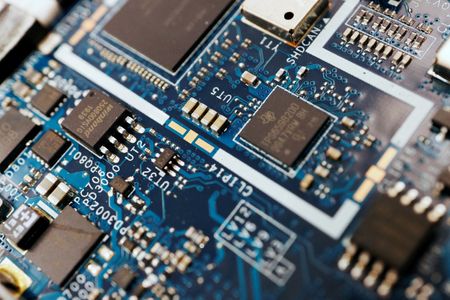AMSTERDAM (Reuters) – Semiconductor industry group SEMI Europe called on the European Union on Monday to place as few restrictions as possible on outbound investment in foreign computer chip technology by companies based in the bloc.
Proposals to screen outbound investment – European capital being invested in foreign semiconductor, AI and biotechnology companies – are being considered, though no EU decision is expected before 2025.
The U.S. has issued draft rules for banning some such investments in China that could threaten U.S. national security, part of a broader push to prevent U.S. know-how from helping the Chinese to develop sophisticated technology and dominate global markets.
“European semiconductor companies must be as free as possible in their investment decisions or otherwise risk losing their agility and relevance,” SEMI Europe said in a paper outlining its recommendations.
It said policies under consideration by the EU appear to be overly broad and if adopted could force companies to disclose sensitive business information, adding that restrictions on cross-border research cooperation would be misplaced.
“We encourage the European Commission to further address these aspects and to not infringe on the ability of European multinational companies to carry out the necessary investments to sustain their operations,” it said.
SEMI Europe represents about 300 Europe-based semiconductor firms and institutions, including companies such as ASML, ASM, Infineon, STMicroelectronics, NXP, and research centres such as imec, CEA-Leti and Fraunhofer.
Alongside the proposals for outbound investment screening, the EU has also been moving towards a law that screens inbound investments of foreign capital that might pose a security risk, such as purchases of European ports, nuclear plants and sensitive technologies.
(Reporting by Toby Sterling; Editing by Helen Popper)





